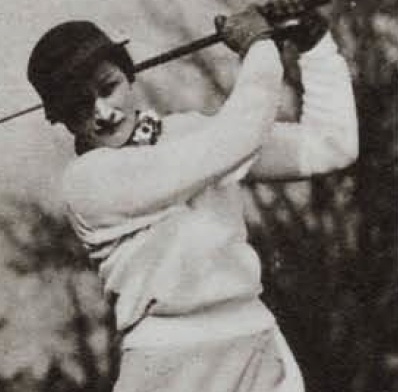OTD in early British television: 7 June 1937

John Wyver writes: Seven months after the start of the schedule from Alexandra Palace, on Monday 7 June television’s offerings were a typical mix of, in the afternoon between 3pm and 4pm, a local OB, a newsreel and an upscale variety line-up, followed by an evening hour from 9pm of a short studio feature, a recital, another newsreel, and the BBC Dance Orchestra in concert.
There was no sense of building a schedule across either session, and no links between the disparate elements. By this point there were perhaps a few hundred operational receivers across London, many of which were in dealers’ showrooms, and the twice daily priority for the over-worked, resources-starved AP producers was simply to get something, anything, onto the airwaves.
The afternoon began with sound and visual tuning signals at 2.45pm, before Big Ben chimes, almost certainly accompanied by a visual, at 20 seconds before 3pm. 15 seconds after the hour transmission went to shots from the ninth green of the AP golf course provided by one or more cameras connected by thick cables to the control room of studio B.
Tee Time (and I’m sure someone was really pleased when they came up with that) featured golf writer Bernard Darwin (grandson of Charles) introducing golf professional Poppy Wingate (above) who demonstrated a variety of shots. Radio Times was still running a Television Supplement at this point, with relatively expansive listings across three pages, and in addition to the photograph, the magazine featured this text:
Miss Poppy Wingate is the only woman golf professional in England, though she has one rival in Scotland. Her position has its disadvantages, however, one of them being that she is not eligible for any women’s golf competitions.
She therefore has to play entirely in men’s competitions, which rather curtails her cup-winning chances. She has been playing and teaching for the last twelve years, and running a golf school in London for three and a half years.
At 3.19pm transmission cut to British Movietonenews edition 418 for 9 minutes, which had also been released to cinemas that day. Stories including a fire in Bombay, Lord Apsley opening an oil well in Sussex, and a report on the Thames Barges race at Gravesend.
After which Studio B came online with a presentation, prosaically but accurately titled Half-an-Hour, compiled by producer Stephen Harrison. Following three classical songs by soprano Ingrid Linck, accompanied at the piano by Harold Stuteley, the one-act playlet The Square of Black Silk by Bertram Henson was given by a cast of four.
Finally, four Ballet Rambert dancers, including the choreographer, performed Felicity Andreae’s popular piece set to Ravel, Valses Sentimentales, or at least elements of it. (After the war, as Felicity Gray the choreographer would be the driving force behind the BBC’s hugely successful Ballet for Beginners.) Transmission shut down at 35 seconds before 4pm.
Tuning signals and Big Ben chimes were repeated for the evening broadcasts, as well as a ‘programme summary’ of the delights in prospect, spoken by an announcer who may or may not have been in vision, and 22 seconds of a weather chart. At 45 seconds after 9pm the studio feature Iris Show began, as Radio Times promised:
Blooms from the Iris Show to be held under the auspices of the Royal Horticultural Society on June 8 and 9 will be brought to the studio and shown and described by C. H. Middleton and R. Findlay, Superintendent of the Royal Horticultural Society Gardens at Wisley.
Just after 9.10pm, an ‘Interval’ graphic came up accompanied by the record ‘Charlie Kunz Piano Medley’, to be replaced in just over four minutes by the live presentation Songs at the Piano with Edward Cooper. Six songs and 11 minutes later it was time for another newsreel, this time from Gaumont British, no.359.
Just 10 seconds into the first, however, which was showing the King’s birthday parade rehearsals at Tidmouth, there was a breakdown in vision, reminding everyone, both then and now, how fragile was the technical underpinning of the service. The film was abandoned, the record ‘Summer Days’ came on, interrupted by a 35-second apology for the interruption.
Eleven minutes after the newsreel started and almost immediately stopped, the BBC Dance Orchestra directed by Henry Hall kicked in as both sound and vision under the supervision of D.H. Munro. Dance music was interspersed with vocals from Leslie Douglas, Bernard Hunter, George Elrick and others. The concert ran for 32 minutes before closedown at just before 10.10pm, signalling the end of another typical day’s scrambled-together programming from AP.
[OTD post no. 172; part of a long-running series leading up to the publication of my book Magic Rays of Light: The Early Years of Television in Britain in January 2026.]
These are completely fascinating. Thank you.
Thanks so much, Jamie, that’s very kind. You probably know this, but your father Frank’s first documented television credit is as the presenter of a variety show, ‘New to You’, from Alexandra Palace on the afternoon of Thursday 11 September 1947, when I believe he was 27.
Guests that day included Sydney Shaw and his harmonica, comedian Leslie Glenroy, harmony singers Moore and Hatton, Philip Hattey with character songs, and tap dancers The Three Barons. Nat Allen and his orchestra provided the music, and the producer was , Henry Caldwell, doyen of LE in the post-war years. Où sont les neiges d’antan, eh?